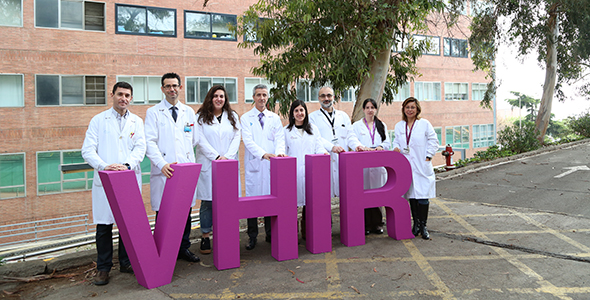Cardiovascular Diseases
Reparative Therapy of the Heart
Manuel Galiñanes Hernández
Researchers Kelly Casós Vásquez, Miguel Ángel Castro Alba, Juan Manuel Gracia Baena, Carlos Sureda Barbosa | Researchers in Training Èlia Bosch Rué, Paula Soler Ferrer | Nursing, Technical, and Administrative Staff María de los Llanos Pérez González


Summary
The main aim of our group is the clinical applicability and exploitation of laboratory research. Our laboratory is linked to several other laboratories nationally and internationally to collaborate in laboratory and clinical studies and to take advantage of the multidisciplinary approach. At present, our laboratory participates in highly relevant European projects. In addition of our involvement in translational regenerative cardiovascular medicine, from 2014 we participate in the European project: “Defining the role of xeno-directed and autoimmune events in patients receiving animal-derived bioprosthetic heart valves”-TRANSLINK to investigate the role of immune reactions in the deterioration of implanted biological prosthetic valves (FP7-Health-2013-INNOVATION-1). In this project our group also investigates the contribution of oxidative and nitrosative stress as effectors of deterioration of bioprosthetic heart valve. The results of this project may strongly impact the treatment of heart valve diseases by extending the duration of the bioprostheses implanted, improving morbid-mortality in patients with heart valves diseases and allowing the indication of bioprosthetic heart valves in younger patients. For the last 2 years, we also have made important progress to understand the mechanisms of ischaemic injury and protection in the human myocardium. To this end, an in vitro model of ischaemia/reoxygenation using right atrial appendage tissue obtained during cardiac surgery, and previously characterised in our laboratory, is being used to unravel the effects of different cardiac and systemic diseases, as well as the effect of the medication received, on the tolerance of the myocardium to ischaemic injury and its capacity to defend itself from the damage. It is expected that the knowledge obtained from these studies will lead to a more personalised cardioprotective strategies and a reduction in the morbidity and mortality after an ischaemic insult.



